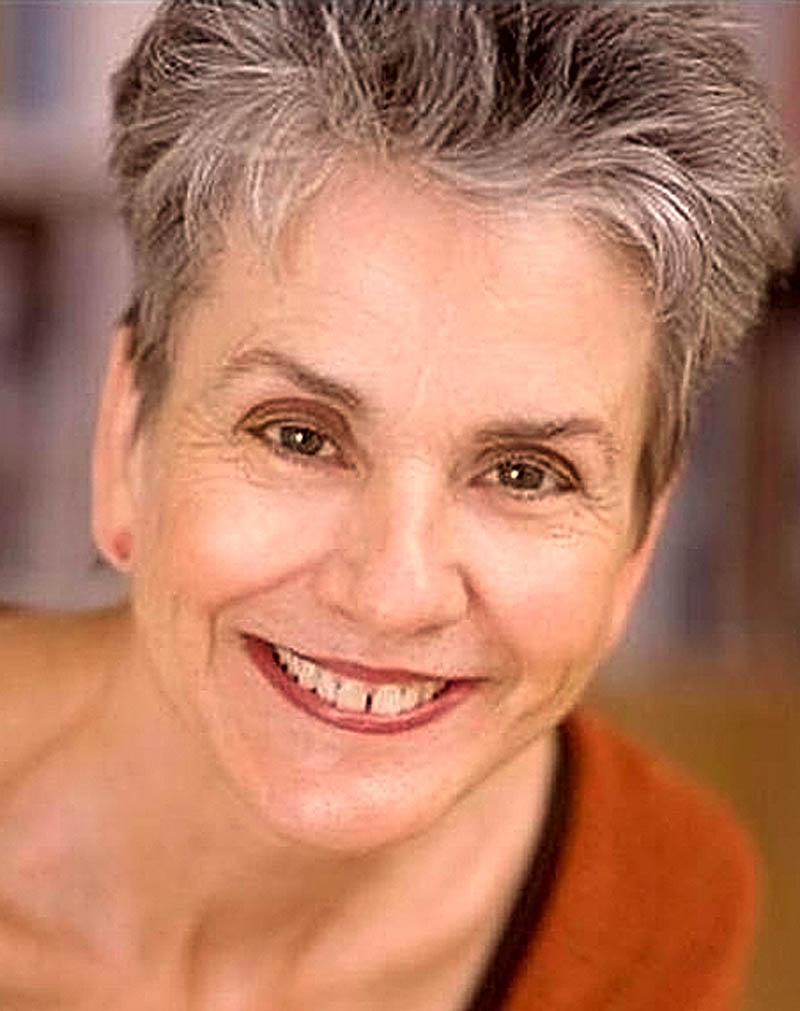WATERVILLE — The challenge of humanity is how we see the planet. As human beings, we are wired to see the world a particular way.
“We grow up in a certain culture, and it’s hard to see outside that box. Right now humanity is trapped in a way of seeing life in a way that is very anti-ecological. Right now it’s telling us that our fundamental problem is scarcity, that we think the Earth has a limit to feed and support us,” said Francis Moore Lappe, author of the book “Diet for a Small Planet” and a guest lecturer tonight at Colby College.
The book, published in 1971, is one of the first critiques of grain-fed meat production that depicts it as wasteful and a contributor to food scarcity. Tonight, Lappe, 69, spoke on the choices we make as humans, how they contribute to global food production and how our perceptions of scarcity and hunger have changed over the last 40 years.
As a writer and social activist for her organization, the Small Planet Institute, in Cambridge, Mass., Lappe said her current goal is to challenge people’s assumptions about food scarcity.
There is no reason anyone on Earth should go hungry or be made sick by their food, Lappe said. According to the World Food Programme, a division of the United Nations, 842 million people in the world do not have enough to eat. The organization also says poor nutrition causes 45 percent of deaths in children under the age of 5 — about 3.1 million children each year.
Lappe said some of our approaches to growing food involving agricultural chemicals make people dependent on buying fertilizers, pesticides and patented seeds. Some of those so-called solutions are actually making people more dependent, requiring them to take out loans to buy those things; and then if their crop fails, they go hungry, said Lappe.
“We’ve made people dependent, rather than a knowledge-based system where they learn how to grow food in ways that are in line with nature and are not chemically dependent,” Lappe said.
What Lappe advocates instead is what she calls agro-ecology, or applying ecology to agriculture. Examples include growing crops in the same fields so they nurture each other and raising plants and animals together so they can feed off each other and put nutrients back into the soil.
“It’s not about more and more quantity; it’s about shifting over to the quality of human relationships and whether people who are growing food have the knowledge and tools to prevent their own hunger,” she said.
Since the publication of “Diet for a Small Planet,” Lappe said, she sees differences and similarities in American mindsets. She said she remembers sitting in the library as a student at the University of California at Berkeley in 1969, reading newspaper headlines saying the world was running out of food and that scarcity was inevitable. Famine was predicted.
“Today it’s almost like a replay. Because of climate change, everyone is saying we are going to run out of food and that scarcity is inevitable, and yet it’s just not true,” Lappe said. “It’s wild to me that the same fear-driven messages are still prominent.”
What is different is how much more we know about how to grow food in a sustainable and ecological way and how much more evidence there is that it works, she said. Hundreds of thousands of farmers have participated in projects using these agricultural methods, resulting in increased yields in food, Lappe said.
Today there is more awareness about choosing to eat healthful and locally grown foods and less grain-fed meat, but many people still suffer from diet-related diseases, both in the U.S. and other parts of the world, said Lappe, who is the 2013-2014 Andrew Mellon fellow in environmental studies for Colby.
The fellowship brings environmental scholars, activists and leaders to campus to engage in conversation on environmental themes. Lappe, who will visit the campus again in April as part of the fellowship, has met with students who have read some of her books, including her most recent book, “EcoMind,” and on Monday visited a student garden at Colby.
Community gardens, organic farming and community-supported agriculture systems, also known as CSAs, are recent movements that Lappe said did not exist when she wrote her first book.
She said she wants to share the story of how she got involved in the global food movement with students. “If people aren’t eating, what else matters? It seemed like the most obvious place to start to understand what is going on in the world,” said Lappe. “I wanted to make a positive difference. I think most people do.”
Rachel Ohm — 612-2368
rohm@centralmaine.com
Send questions/comments to the editors.




Success. Please wait for the page to reload. If the page does not reload within 5 seconds, please refresh the page.
Enter your email and password to access comments.
Hi, to comment on stories you must . This profile is in addition to your subscription and website login.
Already have a commenting profile? .
Invalid username/password.
Please check your email to confirm and complete your registration.
Only subscribers are eligible to post comments. Please subscribe or login first for digital access. Here’s why.
Use the form below to reset your password. When you've submitted your account email, we will send an email with a reset code.